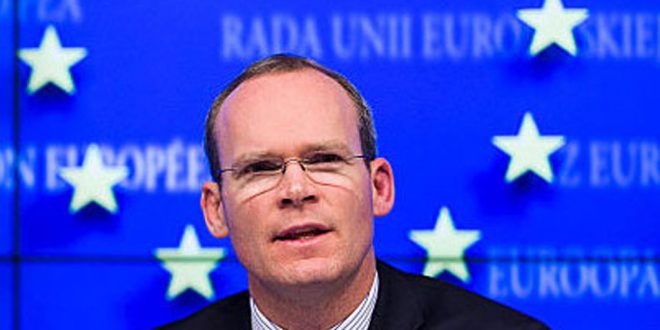The Minister for Foreign Affairs, Simon Coveney T.D., today welcomed the decision of the Community of Portuguese Language Countries (CPLP) to accept Ireland as an Associate Observer. This decision was taken at a Summit of CPLP Heads of State and Government in Luanda, Angola on 17 July.
Minister Coveney said:
“I am delighted that the leaders of the Community of Portuguese Language Countries (CPLP) have decided today to accept Ireland as an Associate Observer.
“Associate Observer status at the CPLP will strengthen Ireland’s links with Portuguese-speaking countries around the world. This will build on Ireland’s strong political relations, trade relations and long-standing development cooperation partnerships with CPLP Member States. Associate Observer status at the CPLP will also support the development of stronger linguistic, academic and cultural exchanges with Portuguese-speaking countries.
“Today’s decision delivers on a commitment made in the Government’s Africa Strategy in 2019. It is consistent also with the ambition of our Global Ireland strategy which saw the Government commit to doubling the impact of Ireland’s global footprint by 2025.
“I submitted Ireland’s Associate Observer application to the CPLP on 5 May, World Portuguese Language Day. Portuguese is a major global language spoken by over 260 million people. Portuguese has become a Leaving Certificate curricular language and is in demand by employers. This decision will support the Government’s efforts to improve proficiency in the language. Knowledge of foreign languages and greater cultural awareness are key skills for Ireland’s economy in an increasingly globalised world.
“Over 20,000 Portuguese speakers call Ireland home. They are our family, friends and neighbours, and they enrich communities across the country. Thousands of Irish people live in Portuguese-speaking countries and have contributed over decades in education, healthcare, business, culture, the arts, and much more. In deepening Ireland’s partnerships with Portuguese-speaking countries, we are building on the strong bonds of friendship between our people.”
ENDS
Press Office
17 July 2021
Notes for Editors
- The Global Ireland initiative aims to double Ireland’s global impact by 2025. In November 2019, Minister for Foreign Affairs, Simon Coveney T.D., launched ‘Global Ireland: Ireland’s Strategy for Africa to 2025’, which sets out how this ambition will be achieved in Africa. The Africa Strategy included the commitment to seek Associate Observer status at the Comunidade dos Países de Língua Portuguesa (Community of Portuguese Speaking Countries, or CPLP), of which the majority of member states is African.
- The CPLP is an international organisation which operates as a multilateral forum for the governments and peoples of the countries in which Portuguese is an official language. It was founded in Lisbon in 1996 and now consists of nine member states across four continents: Angola, Brazil, Cabo Verde, Equatorial Guinea, Guinea Bissau, Mozambique, Portugal, São Tomé e Príncipe and Timor Leste. A CPLP priority work area is the promotion of the Portuguese language. There are currently eighteen countries and one international organisation with CPLP Associate Observer status, including six EU member states.
- Portuguese is spoken by approximately 260 million people globally and its use continues to increase rapidly, including in lusophone Africa. According to the 2016 Census, Portuguese is spoken in the home by 20,833 people in Ireland, making it the eighth most used foreign language in the State.
- ‘Languages Connect’, the Government’s Strategy for Foreign Languages in Education, 2017-2026, includes commitments around the teaching of Portuguese as a curricular language at post-primary level.
- Ireland’s National Skills Strategy 2025 lists foreign languages and cultural awareness among the cross-sectoral skills that improve an individual’s employability and enable occupational mobility, with specific reference to Portuguese as a language in demand. Portuguese is also among the eight languages identified by the economic development agency, Enterprise Ireland, as important for Ireland’s future skills needs.















































